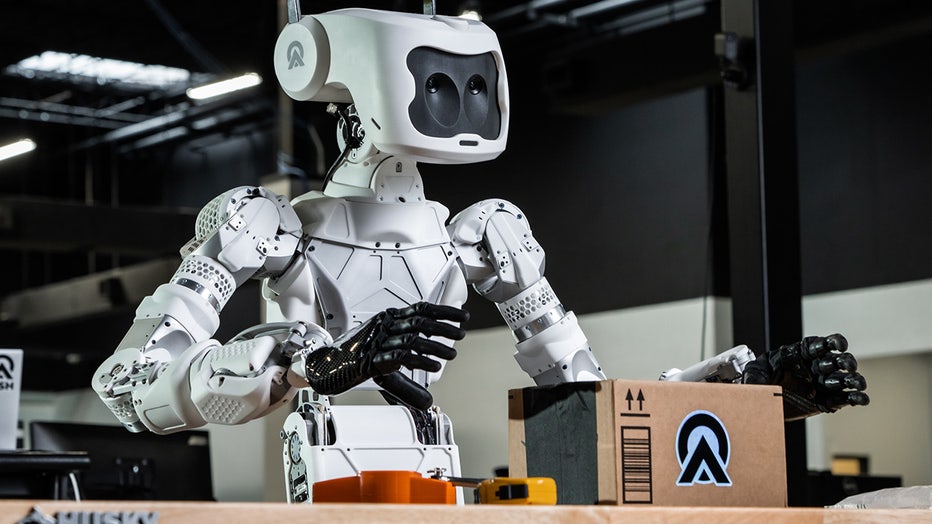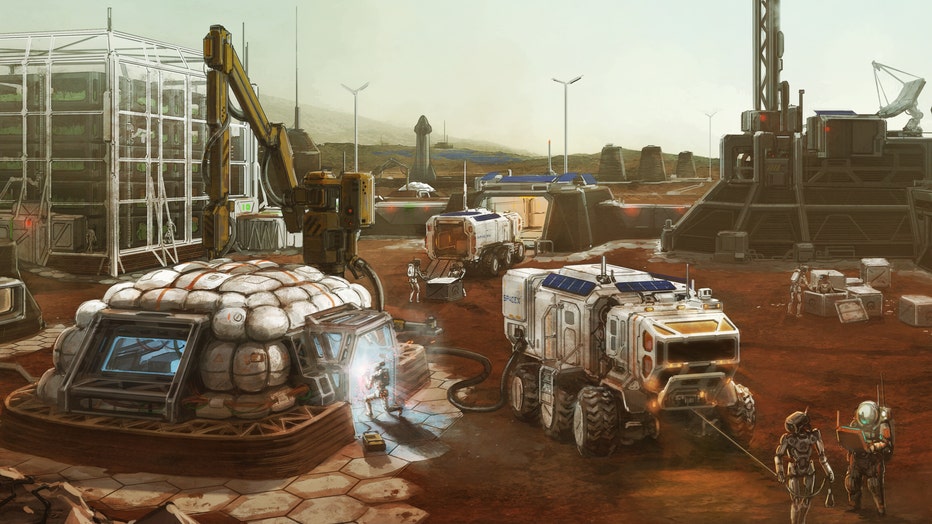NASA and Austin robotics company Apptronik partner on humanoid robots
NASA, Austin robotics company partner on humanoid robots
The robots you might think of from movies or television are not somewhere in the distant future. They’re actually much closer to Austinites in proximity, at Apptronik’s office in North Austin. FOX 7 Austin's Kelly Saberi has details.
AUSTIN, Texas - The robots you might think of from movies or television are not somewhere in the distant future. They’re actually much closer to Austinites in proximity, at Apptronik’s office in North Austin.
Apptronik is a robotics company making commercial robots that will work in the healthcare, hospitality, military, and aerospace industries a reality.
The start-up is a spin-off of the Human Centered Robotics Lab at the University of Texas at Austin. The company recently re-partnered with NASA, to design one of the world’s most powerful humanoid robots for the administration. The robot will be named Apollo.
"This partnership represents an inflection point for robotics as a whole, that these types of mobile robots are really now ready to get out into the real world so we’re really excited about it," Jeff Cardenas, one of the co-founders and CEO of Apptronik said.
NASA and Apptronik first collaborated during the DARPA Robotics Challenge in 2013 when the company’s co-founders were tapped to work on the Valkyrie Robot.
Apptronik specializes in versatile mobile robots, unlike the more widespread robot that repeats one task, these robots are designed to do anything humans can do. The analogy they use to explain this is the flip phone versus the smartphone. A flip phone can make calls, like a robot arm putting doors on vehicles in a factory. On the other hand, a smartphone can do anything we design it to do, like the robots at Apptronik.

Some may wonder why their robots resemble humans. The world on Earth is designed for humans to navigate, therefore humanoid robots will need to traverse a human-centric world. NASA can ultimately use Apollo to make settlements on the moon and Mars. The robots need to be like humans to carry out functions that people would do in space and to use human tools.
Apollo will debut in March 2023 at SXSW.
Astra, pictured above, is similar to Apollo in the sense that it is a human-scale robot and has dexterity. It can be seen moving its fingers.
"One of the things you can see is that it's safe to be around it has what’s called compliance," Cardenas said. "If I push on this robot it's not rigid. It’s safe for me to be around."
As for fear of robots, Cardenas compares robots to the computers we use every day. There once was fear surrounding their emergence, but most people can’t imagine living or working without one.
"Think about where cars were at when there was only 12,000 units," Cardenas said. "Think about where computers were at at only 12,000 units or cell phones. What that really represents is we're at the very beginning of this, you know, explosion of robots of all different types. They're going to be a big part of our lives and robots that really change the way that we live and work."

Co-founder Nick Paine is an Austin native, born and raised in the city and has seen it change from a mid-sized city to a flourishing metropolis for tech.
"We've seen historically Silicon Valley be the epicenter of a lot of innovation and investment. And now a lot of that's moving to Austin. We've got, I think, a unique combination of art and technology," Dr. Nick Paine, one of the co-founders of Apptronik said. "We've got the University of Texas here, and I think people from all over the country are moving to Austin, and it's exciting to be right in the middle of it. And, you know, we're innovating in a really unique way at Apptronik, and it's cool to be doing that here in Texas."
Apptronik is not only solidifying Austin as a tech hub but is putting the United States on the map for robotics too. North American companies acquired a record number of robots in the first half of 2022, with over 12,000 robots being purchased. Almost every single one of them is being made in Asia-Pacific and Europe.
Apptronik raised about $14.6 million in funding in June.

